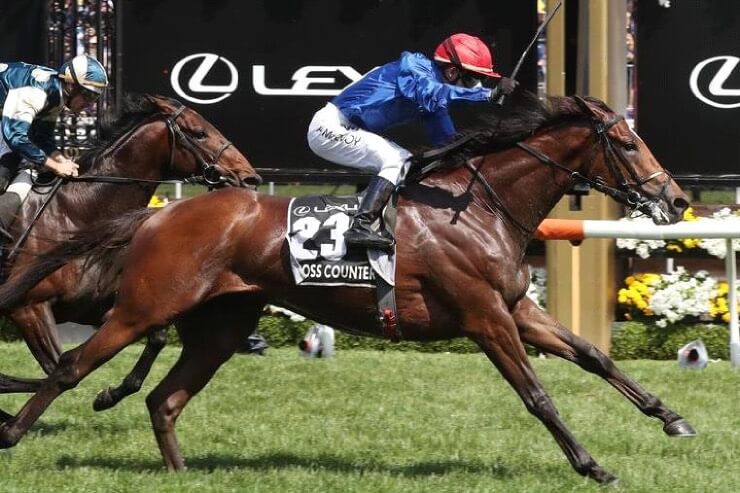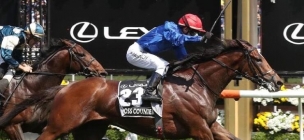Your Horse Racing Jargon Guide for the Melbourne Cup
Mar 26, 2019 08:02
Don’t get caught out on Melbourne Cup race day because you don’t understand the jargon. Learn how to talk the talk by following this easy guide.

Also Ran – This is a horse that finishes out of the money.
Backed Off the Map – A racehorse that’s heavily backed, usually in a short space of time.
Barriers – The race starting gates or stalls.
Birdcage – An area where the horses are proudly paraded around before the race.
Blinkers – A hood to restrict the horse’s field of vision so it doesn’t get distracted.
Bolted – When a horse bolts ahead of the pack out of the gate, or races away to win the race by many lengths.
Bookie – The bookmaker who takes your bets.
Checked – A horse gets interference on the track.
Class – This is grade or standard of the race.
Colt – A non-gelded male horse under the age of three.
Connections – This refers to the team surrounding the horse; including owners, trainer, jockey and other representatives involved with the horse.
Correct Weight – Once a race has been run, after everything has been checked and verified, the result becomes official and winnings can be paid out.
Daily Double – A betting option where you need to pick the winners in two select races.
Dead Heat – This occurs when two horses are tied at the finish line and can’t be split in a photo finish.
Derby – A stakes race day for 3 year olds only.
Each Way – Cover your bet by placing equal money on a horse for a win or a place.
Extended – The jockey has the horse running at top speed.
Farrier – A blacksmith who specialises in horse’s hooves.
Favourite – This is the horse with the most bets placed on it and therefore has the shortest odds.
Feature Race – This is the main race on the day’s calendar. Usually the feature race will have the most prize money on offer, such as the Melbourne Cup.
Field – All the horses in a given race.
Filly – Like a colt, this is a female horse 3 years old or less.
Front Runner – This horse likes to lead from the front for as long as possible.
Furlong – A horse racing unit of measurement equivalent to about 200 metres.
Grew Another Leg – A floundering horse suddenly gets a second wind and makes a comeback.
Heavy Track – A slow, muddy and rain affected track.
Hoop – Slang term for a jockey.
In the Money – The horse placed in the race and won prize money.
Lame – This simply means a horse has an injury and is physically encumbered.
Late Mail – Late tips about scratchings and track conditions.
Long Shot – Big odds on a horse not given a chance of winning.
Maiden – This horse has never won a race.
Mudlark – A racehorse that loves racing on wet, muddy tracks.
Mug Punter – If you’re one of these, it means you suck at betting on horses.
Nose – Smallest measure between horses, as in “won by a nose”.
Protest – After a race is run, a complaint is lodged with the stewards that could affect the race’s outcome.
Punter – A person who bets on races.
Runner – A slang term for racehorses.
Silks – This is the uniform the jockeys wear.
Sprint Race – Short distance race of no more than 1200 metres.
Stallion – A virile male horse reserved for breeding and not racing.
Stayers – These horses are not sprinters, but excel at long distance races.
Stewards – These are the racing officials. They are responsible for ensuring everybody follows the racing rules.
Strapper – An employee who basically grooms and looks after a horse daily.
Stone Motherless – This horse finishes last.
Swooper – This horse comes home with a surge, from the tail, up the outside and overtakes the other horses.
Trifecta – Picking the first 3 place getters in the right order.
Unders – This horse’s odds are too low in comparison to its chances of victory.
Wager – The placing of a bet on a horse race.
Well Held – A horse that wins easily without really having to extend itself throughout the race.
Write Your Own Ticket – The chances of this horse winning are so remote that a bookie will give you any odds you want.
Yearling – A horse around a year or two old.







































































